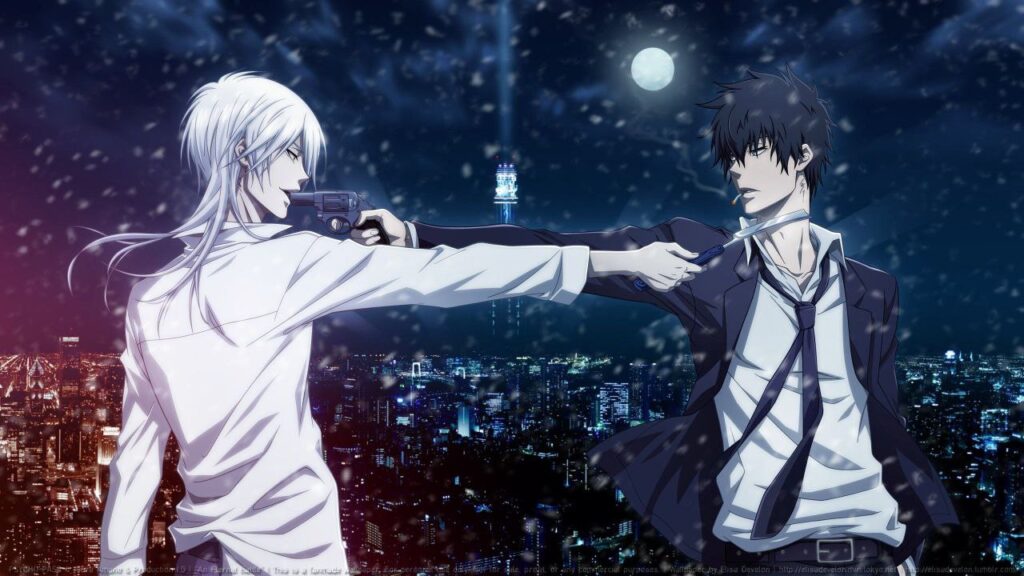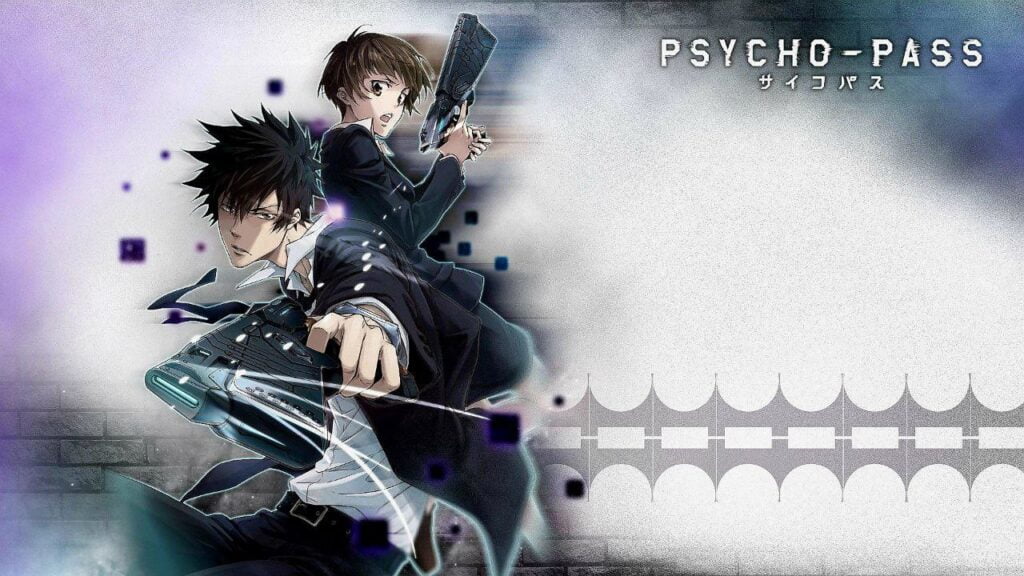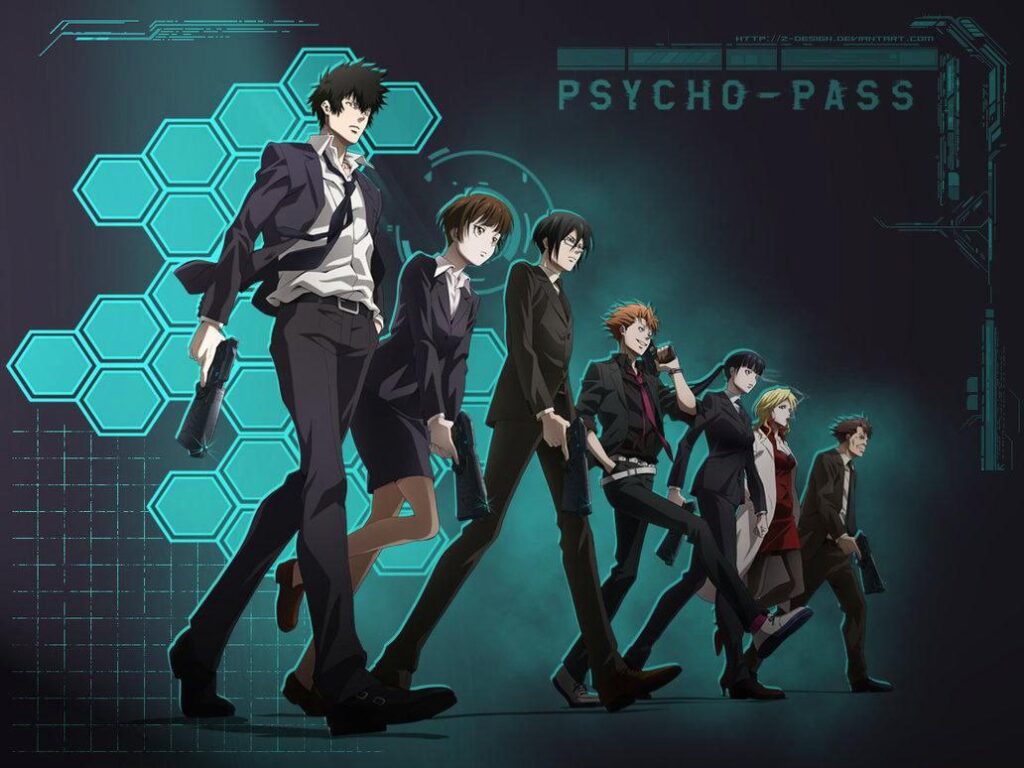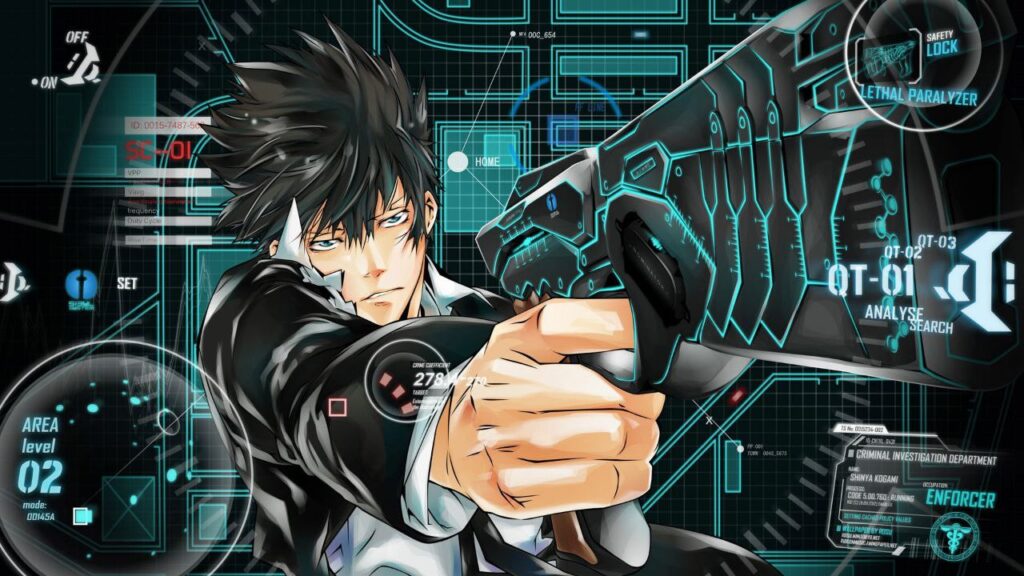
Introduction:
Psycho-Pass, a groundbreaking anime series that seamlessly blends elements of dystopian science fiction, psychological thriller, and cyberpunk aesthetics, has captivated audiences around the world since its debut in 2012. Created by Gen Urobuchi and produced by Production I.G, the series delves into the intricate relationship between technology, morality, and the human psyche, offering a profound exploration of societal control and individual autonomy.
Plot Overview:
Set in a futuristic Tokyo, Psycho-Pass unfolds in a world where a sophisticated system known as the Sibyl System governs society. This system uses advanced technology to constantly monitor individuals’ mental states and determine their potential for criminal behavior. The resulting “Psycho-Pass” is a numerical representation of one’s mental stability, and those deemed a threat to society are apprehended by law enforcement.
The narrative centers around the protagonist, Akane Tsunemori, a young woman who joins the Public Safety Bureau’s Criminal Investigation Division. Tasked with maintaining order and eliminating potential threats, the enforcers, individuals with elevated crime coefficients, work alongside inspectors like Akane. As the story unfolds, Akane grapples with the ethical dilemmas of the system she serves, questioning the morality of preemptive justice and the true nature of free will.
Themes and Philosophical Underpinnings:
Psycho-Pass transcends typical anime genres by exploring profound philosophical themes. One central theme is the balance between security and individual freedom. The Sibyl System, designed to maintain order and prevent crime, raises questions about the cost of sacrificing personal autonomy for the sake of societal stability.
The show also delves into the nature of morality and the ethical implications of relying on technology to judge human behavior. The Sibyl System’s ability to determine criminal intent challenges traditional notions of justice, prompting viewers to contemplate the consequences of an all-knowing, algorithmic authority.
Furthermore, Psycho-Pass engages with the psychological concept of the “Hue,” which represents an individual’s mental state. The series asks whether it is possible to quantify a person’s mental well-being accurately and whether such quantification can be used to predict criminal behavior.

Character Development and Complexity:
The richness of Psycho-Pass lies not only in its intricate plot but also in its well-developed characters. Akane Tsunemori’s evolution from an idealistic rookie to a complex, introspective leader is a central focus. Her internal struggles with the moral implications of the Sibyl System mirror the broader societal debates woven into the narrative.
The enforcers, former criminals turned tools of law enforcement, add layers of complexity to the narrative. Characters like Shinya Kogami and Shogo Makishima challenge the status quo, questioning the legitimacy of the Sibyl System and its impact on individual autonomy. Makishima, in particular, serves as a charismatic antagonist whose philosophical musings force viewers to reevaluate their perspectives on justice and morality.

Visual Aesthetics and Cyberpunk Influences:
Psycho-Pass showcases a visually stunning cyberpunk world, drawing inspiration from the works of Philip K. Dick and William Gibson. The dystopian cityscape, characterized by towering skyscrapers and neon-lit streets, establishes a bleak yet captivating backdrop for the narrative.
The character designs, courtesy of Akira Amano, contribute to the show’s unique visual identity. Each character’s appearance reflects their personality and internal struggles, adding depth to the storytelling. The animation quality, courtesy of Production I.G, enhances the immersive experience, bringing the cyberpunk world to life with fluid action sequences and attention to detail.

Societal Reflections and Cultural Commentary:
Beyond its engaging narrative and philosophical explorations, Psycho-Pass serves as a mirror reflecting contemporary societal concerns. The series raises pertinent questions about the implications of technological surveillance, the ethics of law enforcement, and the potential consequences of sacrificing individual freedoms for perceived security.
The portrayal of a society dependent on a system that dictates its citizens’ lives resonates with modern anxieties about the encroachment of technology and loss of privacy. As viewers witness the characters grapple with these challenges, they are compelled to examine their own beliefs and confront the ethical dilemmas presented in the series.
Legacy and Impact:
Since its debut, Psycho-Pass has garnered critical acclaim and a dedicated fan base. Its impact extends beyond the realm of anime, influencing discussions on the intersection of technology, morality, and governance. The series has inspired thought-provoking discourse and academic analyses, solidifying its status as a thought-provoking and culturally significant work.
Conclusion:
Psycho-Pass stands as a testament to the power of anime to transcend genres and captivate audiences with its intellectual depth. Through its intricate plot, well-developed characters, and exploration of profound themes, the series challenges viewers to contemplate the societal implications of advanced technology and the delicate balance between order and individual freedom. As we navigate our own ever-evolving technological landscape, Psycho-Pass remains a relevant and timeless masterpiece that continues to resonate with audiences worldwide.
FAQ:
1. What is Psycho-Pass about?
- Psycho-Pass is a dystopian anime series set in a futuristic Tokyo, where a sophisticated system called the Sibyl System monitors individuals’ mental states to prevent crime. The story follows Akane Tsunemori, a young inspector, and her colleagues as they navigate the ethical complexities of a society governed by technology that predicts criminal behavior.
2. Who created Psycho-Pass?
- Psycho-Pass was created by Gen Urobuchi, a renowned Japanese writer and visual novel creator. The anime is produced by Production I.G, a well-known animation studio.
3. What is the Sibyl System?
- The Sibyl System is a fictional technological system in Psycho-Pass that monitors and assesses the mental states of individuals to determine their potential for criminal behavior. It assigns a numerical value, the Psycho-Pass, which reflects an individual’s mental stability and likelihood of becoming a threat to society.
4. What are enforcers and inspectors in Psycho-Pass?
- Enforcers are individuals with elevated crime coefficients who are tasked with enforcing the law under the supervision of inspectors. Inspectors, like Akane Tsunemori, work alongside enforcers and are responsible for making judgment calls based on the information provided by the Sibyl System.
5. How does Psycho-Pass explore philosophical themes?
- Psycho-Pass delves into profound philosophical themes such as the balance between security and individual freedom, the nature of morality, and the ethical implications of relying on technology to judge human behavior. The series prompts viewers to contemplate the consequences of an all-knowing, algorithmic authority.
6. What is the significance of the “Hue” in Psycho-Pass?
- The “Hue” in Psycho-Pass represents an individual’s mental state, visualized as a color. It is a crucial element in the series as it symbolizes the psychological well-being of characters. The changes in one’s Hue reflect the internal struggles and conflicts faced by the characters.
7. How does Psycho-Pass address societal reflections and cultural commentary?
- The series serves as a mirror reflecting contemporary societal concerns about technological surveillance, ethics in law enforcement, and the potential consequences of sacrificing individual freedoms for perceived security. Psycho-Pass encourages viewers to reflect on their own beliefs and confront the ethical dilemmas presented in the narrative.
8. What is the legacy and impact of Psycho-Pass?
- Psycho-Pass has garnered critical acclaim and has had a lasting impact on discussions about the intersection of technology, morality, and governance. Its influence extends beyond the anime community, inspiring thought-provoking discourse and academic analyses.
9. Are there any recommended works similar to Psycho-Pass?
- Fans of Psycho-Pass may enjoy other cyberpunk anime such as “Ghost in the Shell,” “Serial Experiments Lain,” and “Ergo Proxy.” These series explore similar themes of technology, identity, and societal control.
10. Is Psycho-Pass suitable for all audiences?
- Psycho-Pass contains mature themes, intense violence, and psychological elements. It is recommended for a more mature audience and may not be suitable for younger viewers. Viewer discretion is advised.